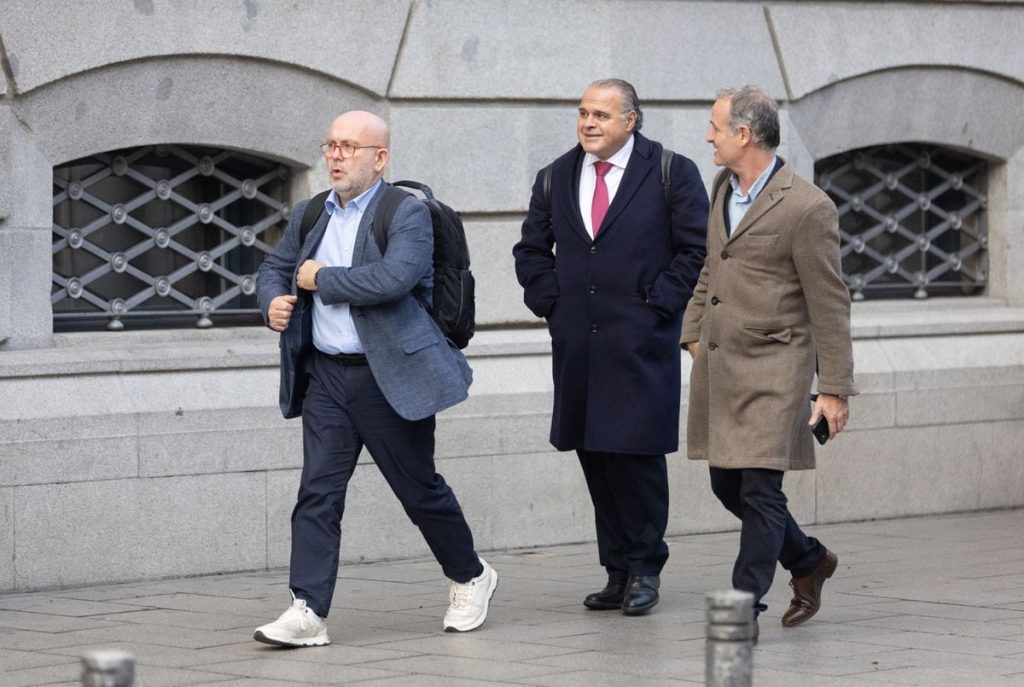On Friday, the Court of Auditors concluded the trial for alleged accounting responsibility against Carles Puigdemont, Artur Mas, Oriol Junqueras, and 32 other former high-ranking officials and officials of the Government of Catalonia, after rejecting Puigdemont’s defense’s request to suspend the hearing. The responsible councilor will now give a deadline to the prosecution and defense to submit their final written arguments – without further in-person hearings – and will issue a judgment at a date to be determined. This case, which investigated the alleged diversion of public funds to organize the illegal referendum of October 1st and promote the independence process abroad, is one of several that will likely be annulled if the amnesty law proposed by the PSOE is successful. The Prosecutor’s Office is demanding that the accused repay 3.4 million euros, while the association Sociedad Civil Catalana, acting as a public prosecutor, is seeking 5.3 million euros. The State Attorney withdrew from the case in January 2022.
Puigdemont’s lawyer, Gonzalo Boye, has stated that the former President of the Generalitat wanted to respond to the summons to testify at today’s hearing, but was unable to do so because he was not allowed to participate via video conference and could not attend in person due to prior commitments in Brussels as a member of the European Parliament. Puigdemont has been in exile in Belgium since 2017 and is subject to an arrest warrant that would be executed upon his entry into Spain. Some of the defenses also criticized the councilor presiding over the trial, Elena Hernáez, for not agreeing to suspend the hearing in light of a proposed amnesty law already submitted in Congress.
The prosecution and defense will now have a period – typically between ten and twenty days each – to submit their respective conclusions in writing. Once all conclusions are received, Councilor Hernáez will issue a judgment. Sources at the Court of Auditors do not rule out the possibility that there may not even be a judgment, in the event that the amnesty law is approved before these final steps are completed. It is customary for parties to present their conclusions verbally in Court of Auditors trials, but in this case, all parties have agreed, at the councilor’s suggestion, to proceed in writing, prolonging the process.
The only scenario in which those involved in this case may not be ultimately granted amnesty is if a hypothetical guilty verdict becomes final – i.e., ratified by the Supreme Court – before the amnesty law takes effect. This is highly unlikely: the amnesty is expected to come into effect within six months, while the finality of a Court of Auditors judgment – which can be appealed first to the court’s Judging Division and then to the Administrative Litigation Division of the Supreme Court – can take years. For example, the previous judgment against the leaders of the independence movement, issued in November 2018, was not confirmed by the Supreme Court until July 2021.
In the final hearing on Friday, three witnesses proposed by the defenses testified. First, María Luisa Lamela, General State Comptroller, was questioned by Puigdemont’s lawyer about the oversight of Catalonia’s expenses imposed by the central government between July 2017 and June 2018. Lamela stated that her role was limited to ensuring payments to creditors. In October 2017, transfers ceased, and the State handled payments, including salaries of officials and expenses in education and health. Boye also inquired about former Finance Minister Cristóbal Montoro’s statement regarding control of Catalonia’s spending. Lamela emphasized that she did not have the capacity to control all payments and that her responsibility was ensuring authorization. Two other witnesses, Antoni Millet Abad and Alfonso González Bondia, both testified that they did not observe any irregularities in operations related to the independence process.


